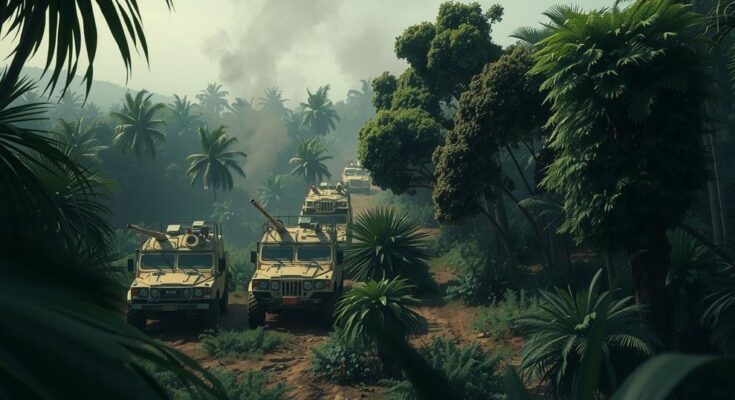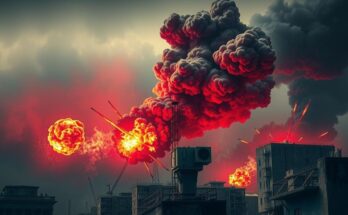The M23 rebels in eastern Congo have dismissed ceasefire calls from Kinshasa and Kigali, capturing Walikale, a strategic town. The ongoing conflict has escalated, involving various regional forces while raising concerns about regional stability. Corneille Nangaa emphasizes the rebels’ local motives and calls for direct talks for peaceful resolution.
In Goma, Democratic Republic of Congo, the leader of Rwandan-backed M23 rebels has dismissed ceasefire appeals from Kinshasa and Kigali, asserting such calls “doesn’t concern us.” The M23 forces continue to advance, recently capturing the strategic town of Walikale, marking their furthest progression westward since they began overrunning eastern Congo’s largest cities earlier this year.
Walikale, home to 15,000 residents, fell after clashes between the rebels and Congolese military forces, according to local reports. This conflict, deeply rooted in historical tensions stemming from Rwanda’s 1994 genocide and competition for resources, has escalated significantly since a previous war from 1998 to 2003 that resulted in millions of deaths.
Experts note that this ongoing conflict now involves troops from Congo, Rwanda, and Burundi, suggesting it may be evolving into a broader regional war. The capture of Walikale, a location rich in tin and strategically situated along key transport routes, allows the M23 to position themselves approximately 400 kilometers from Kisangani, the country’s fourth-largest city.
An M23 officer addressed local residents, reiterating the rebels’ intention to secure a path toward Kinshasa, stating, “We are going to continue…to join our soldiers who are also en route and continue all the way to Kinshasa.” Congolese President Felix Tshisekedi and Rwandan President Paul Kagame had previously called for an immediate ceasefire following a meeting in Doha, yet the M23 leader rejected this appeal.
Corneille Nangaa, head of the Congo River Alliance, emphasized, “We are Congolese who are fighting for a cause,” underlining the rebels’ stance independent of Rwandan influence. While the United Nations has accused Rwanda of providing military assistance to the M23, Rwanda has denied these claims, citing a need to defend itself against Congo’s military.
After previously agreeing to talks in Angola, M23 withdrew, citing European sanctions as a reason for their absence. Analysts suggest that this decision reflects the rebels’ newfound confidence and the complications arising from various foreign peace initiatives. The Angolan foreign ministry stated that effective conflict resolution should be localized, remarking, “African problems should have an African solution.” Nangaa reaffirmed the necessity of direct negotiations with Kinshasa, expressing a desire for a peaceful resolution and improvements in governance.
The M23 rebels continue to gain ground in eastern Congo, explicitly rejecting ceasefire calls while asserting their local motivations. The conflict, inherently linked to historical grievances and regional dynamics, highlights the need for a focused resolution strategy, preferably through direct dialogue. As external influence complicates the situation, the need for African-led solutions becomes increasingly evident.
Original Source: sightmagazine.com.au




